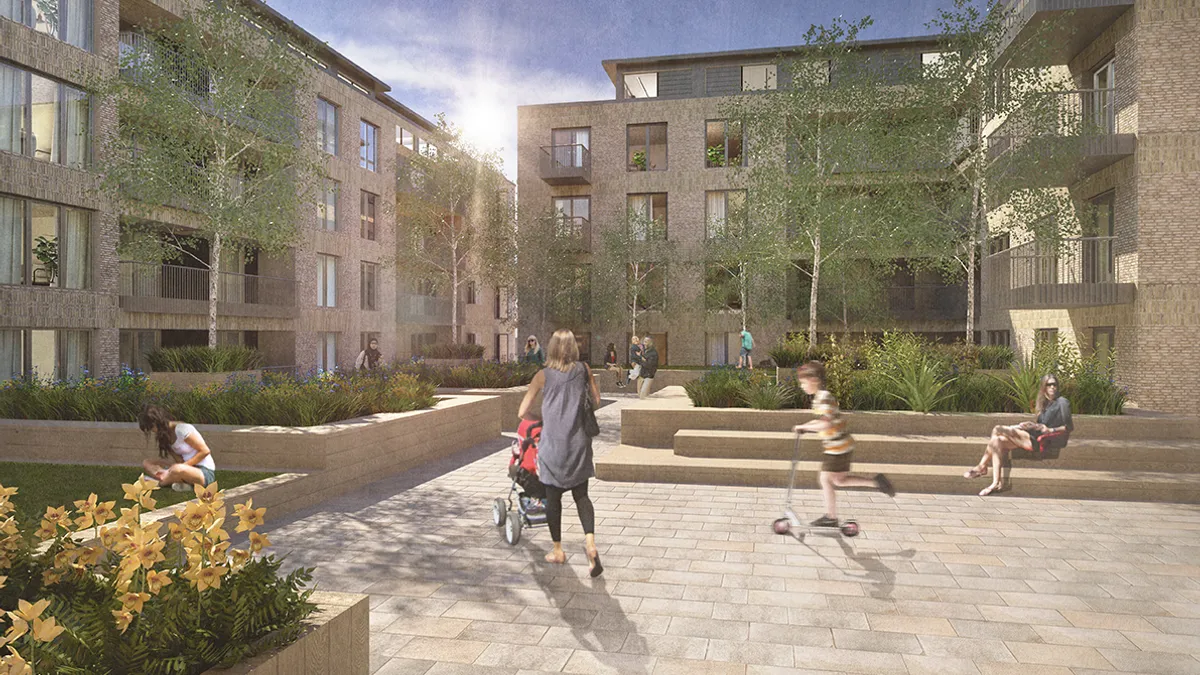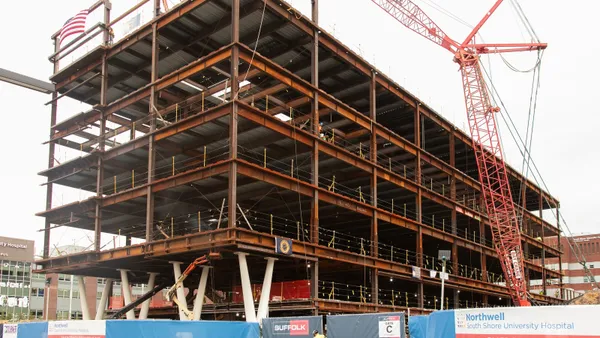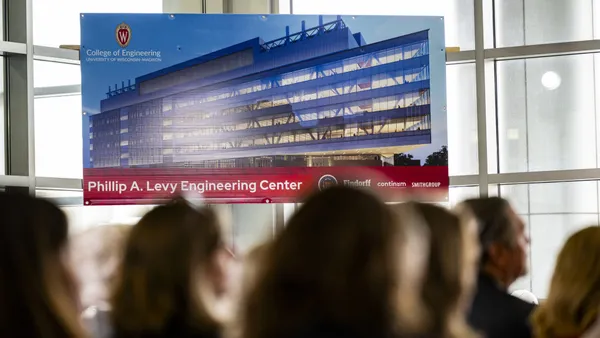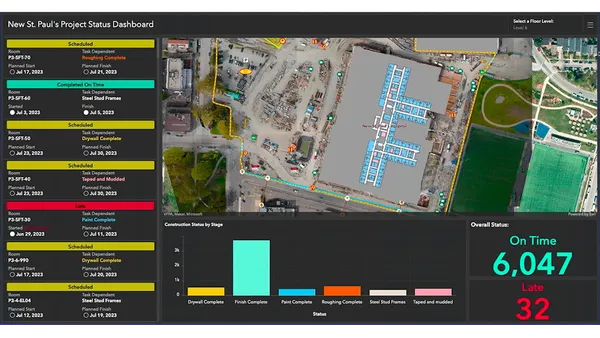Dive Brief:
- Modulous, a London-based software provider that automates modular multifamily project design, pricing and programming, raised $11.5 million of Series A funding to further grow its physical and digital technologies, according to a company press release.
- The company also announced Sam Gioia as head of U.S. manufacturing and assembly, to oversee U.S. market delivery of the company’s modular kit of parts for building residential multifamily housing.
- The funding round is the latest sign of growing interest from investors in companies that help decarbonize the real estate and construction industries.
Dive Insight:
Upfront costs remain one of the big headwinds in mass modular adoption, said Modulous CEO Chris Bone.
For example, in 2021 approximately just 1% of multifamily buildings were built using modular and panelized methods, according to a National Association of Home Builders analysis of Census Bureau data. Despite expectations for broader adoption, that penetration is actually down from 5% in 2011 due to various constraints in the industry, the association said.
Two of those constraints have been the high cost of building modular factories, and the challenge and expense of transporting components to jobsites. Modulous’s software enables developers and construction firms build modular housing without capital intensive factories, Bone claimed.
“Modular delivery is really the only way the housing crisis can be resolved, but, for many, the upfront capital investment has held back the industry’s ability to scale,” said Bone in the release. “We are keen to prove that by collaborating with each other, the industry can move forward with transparency and cost certainty front and center.”
Modulous’ platform automates multifamily real estate project design, costing and programming. That means developers, architects and contractors can figure out pricing and decide whether a site is viable within hours, the firm said, as opposed to longer timeframes.
At the same time, its kit of parts enables general contractors to deliver multi-story modular or prefab apartment buildings without needing complex and costly factories. Instead, Modulous said its established supply chain partners deliver sub-assemblies to contractors near a jobsite for final assembly.
Modular models
Modulous’ asset-light approach differs, for example, from the business model of Katerra, a Menlo Park, California-based offsite construction company that filed for bankruptcy protection in June 2021.
Whereas Katerra attempted to buy and bring its supply chain in-house for its operations, Modulous instead uses existing supply chains and focuses on building a technology platform that enables modular construction by coordinating the efforts of each stakeholder along the way.
Other modular companies are taking a similar asset-light approach, such as Philadelphia-based modular builder Volumetric Building Companies and modular startup Assembly OSM.
“The U.S. urgently needs more housing, a clear pathway to net-zero development and an approach to home-building that enhances communities by integrating new construction seamlessly with the surrounding environment,” said Gioia. “Modern methods of construction enable all three goals by standardizing processes to gain manufacturing efficiencies.”
Investors in Modulous include SFV, the venture arm of German real estate developer Patrizia; Regal London, a U.K. real estate developer; and CEMEX Ventures, the venture arm of construction giant CEMEX and Blackhorn Ventures, a Boulder, Colorado-based venture capital firm.
Toronto, Ontario-based GroundBreak Ventures, and Goldacre and Leela Capital, both U.K.-based firms, also participated in the funding round.















